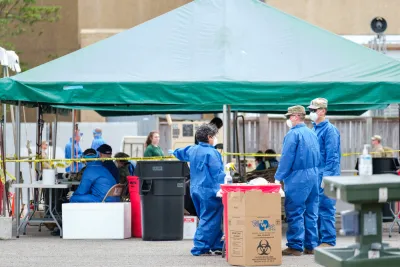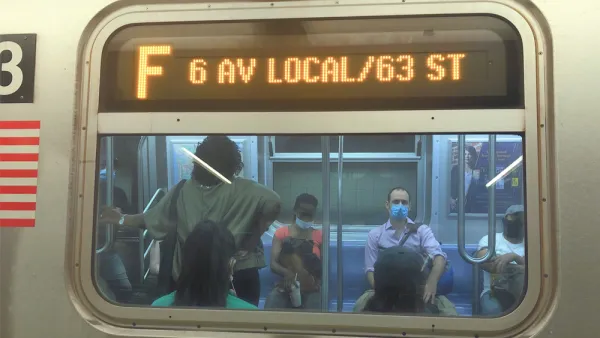Congressional leaders are discussing the shape and size of the next federal stimulus bill. The following critique argues that the next bill should do more to expand testing, contact tracing, and quarantine capacity at the state level.

Ben Adler takes a look forward at the likely shape of the next federal stimulus and makes a brutal assessment of the federal government's approach to the public health and economic crisis facing the country: "Congress remains perversely determined to treat the symptoms, rather than the illness."
Instead of addressing the public health crisis directly (the illness), according Adler, "the disaster that the next round of stimulus will address, according to media accounts, is the same as the last one: the financial losses to businesses and workers caused by the social distancing measures put in place to limit the spread of the new coronavirus."
While funding for hospitals and an economic safety net for businesses indirectly supports the fight against the coronavirus, according to Adler, restarting the economy and defeating the coronavirus will require testing and contact tracing capacity like those in place in South Korea. The United States hasn't even begun to build to build that capacity.
What would such a federal effort look like? For one thing, it would involve a lot more aid to state and local governments earmarked for the purpose. “It means a massive infusion at the state and local level, because the people who are going to do the testing, do the contact tracing, are all state and local people,” said Gregg Gonsalves, a professor of public health at Yale. “The last bill has $150 billion to state and local governments, but they’re losing sales and income tax revenue, so $150 billion doesn’t even begin to meet the lost revenue gap. Money has to flow to the states to do the shoe leather epidemiology.”
More details on how the current federal efforts are falling short of treating the illness, rather than treating the cure, follow in the source article.
FULL STORY: Bailouts Won’t Save the Economy. More Coronavirus Tests Will.

Analysis: Cybertruck Fatality Rate Far Exceeds That of Ford Pinto
The Tesla Cybertruck was recalled seven times last year.

National Parks Layoffs Will Cause Communities to Lose Billions
Thousands of essential park workers were laid off this week, just before the busy spring break season.

Retro-silient?: America’s First “Eco-burb,” The Woodlands Turns 50
A master-planned community north of Houston offers lessons on green infrastructure and resilient design, but falls short of its founder’s lofty affordability and walkability goals.

Test News Post 1
This is a summary

Analysis: Cybertruck Fatality Rate Far Exceeds That of Ford Pinto
The Tesla Cybertruck was recalled seven times last year.

Test News Headline 46
Test for the image on the front page.
Urban Design for Planners 1: Software Tools
This six-course series explores essential urban design concepts using open source software and equips planners with the tools they need to participate fully in the urban design process.
Planning for Universal Design
Learn the tools for implementing Universal Design in planning regulations.
EMC Planning Group, Inc.
Planetizen
Planetizen
Mpact (formerly Rail~Volution)
Great Falls Development Authority, Inc.
HUDs Office of Policy Development and Research
NYU Wagner Graduate School of Public Service




























